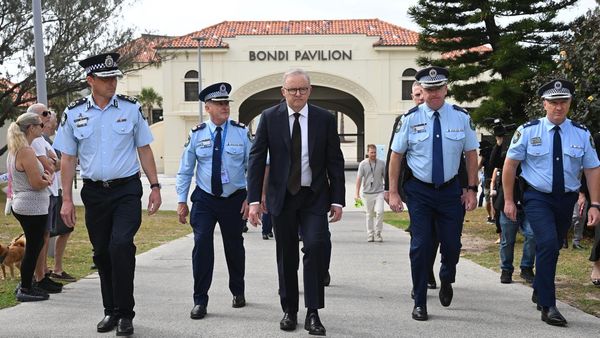
The health minister, Mark Butler, has said the Albanese government will monitor the impact of smoking bans to be imposed by New Zealand and now the UK, as health experts and advocates say pressure is on Australia to “keep pace” with those countries.
The UK prime minister, Rishi Sunak, on Wednesday announced his government aims to raise the smoking age by one year, every year, so tobacco would end up never being sold to anyone born on or after 1 January 2009, following New Zealand’s example with its world-first law introduced in December last year.
The University of Sydney tobacco control expert Prof Becky Freeman said “it is unacceptable that deadly cigarettes are so easily and freely sold in all communities, all across Australia. The pressure is on to keep pace with the UK and New Zealand in taking a bold stance against such a destructive industry.”
The Australian government has recently introduced a comprehensive package of tobacco control reforms, which include the new vaping laws as well as new measures on cigarettes – including adding warnings to cigarette sticks themselves, banning flavours and menthol in cigarettes, refreshing graphic health warnings, which have been the same for over a decade, and banning online advertising.
However, the laws do not go as far as New Zealand and the UK in banning cigarette sales for the next generation. Butler said the legislation, if passed, would enable important reforms to protect Australians against the harm caused by tobacco and vaping products.
“The government has taken an evidence-based approach, following a deep review of existing tobacco regulation, but also best practice across the world,” he said. “The UK and New Zealand have responded to the specific tactics of big tobacco marketed to their populations, and we will monitor their implementation success with interest.
“In the Australian context, we have assessed all of those best practice measures, and they are now incorporated into legislation which has been the subject of substantial exposure and consultation.
“Our next-generation tobacco legislation in parallel with our vaping reforms are policy settings that will make a real difference,” Butler said.
While the package of reforms do not address limiting where and how and to whom tobacco products are sold, Freeman said the door to include reforms targeting “supply-side initiatives” remains open through the National Tobacco Strategy 2023–2030 released in May.
“Strengthening regulation to reduce the supply, availability and accessibility of tobacco products” is one of the key priority areas in the strategy.
Christa Bayer, the acting CEO of the Lung Foundation Australia, said the foundation “strongly supports” the current suite of tobacco reforms progressing through parliament.
Bayer said the strategy included an action to consider raising the minimum age to buy tobacco products. “We would hope this is part of the next phase of tobacco control efforts to be undertaken. Compared to NZ and UK, Australia is leading the way with strong action on e-cigarettes and vaping – we don’t want to fall behind when it comes cigarettes.”
According to the latest data from the Australian Institute of Health and Welfare, 3.2% of 14- to 17-year-old Australians smoke cigarettes. However, as vaping rates surge among young people, research published in August found e-cigarette use is the single strongest risk factor for adolescents taking up tobacco smoking.
Alecia Brooks, the chair of the tobacco issues committee at the Cancer Council, said it was important the government took a comprehensive approach to addressing vaping and cigarettes.
While Australia now had its lowest ever rates of cigarette use among young people, Brooks said she was concerned the positive change could be reversed as research had shown those who use e-cigarettes were three times more likely to take up tobacco cigarettes.
After the government’s new tobacco reforms come into effect, Brooks said it would “definitely [be] time” to look at implementing reforms like in New Zealand and the UK “to ensure that young people never have to face this”.
“We know that tobacco is one of the biggest burdens to our health system and to our society in general,” Brooks said.
“If we can stop young people from smoking in the first place, that’ll give us a fantastic position for us to be in the future.”







